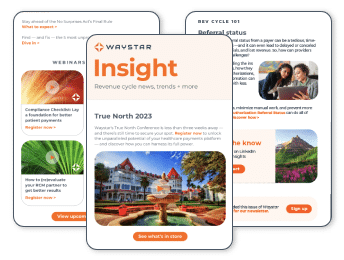If the revenue cycle is the boat carrying the funds your organization relies on, prior authorization problems are holes in the hull. You might be able plug leaks with quick fixes, but without a real solution, sooner or later you’ll find yourself in deep water.
By the numbers
Prior authorization is one of the foundational revenue cycle areas that can critically hamper providers’ financials. Costs have grown, with the price to manually generate a prior auth increasing from $6.61 in 2018 to $10.92 in 2019, per the CAQH index.
Even worse, prior authorization issues can delay or prevent patient care and negatively impact overall experience. According to recent studies and surveys by the AMA:
- 89% of doctors report that prior authorization has a negative impact on patient clinical outcomes
- 94% say it leads to delays in patients accessing necessary care
There’s also staff well-being to consider. Time-intensive tasks like prior auth are strong contributors to clinician burnout, which in turn negatively impacts treatment outcomes. As one Mayo Clinic study puts it, “A multifaceted approach [to mitigating medical error] that also addresses physician burnout is needed. The most effective burnout reduction will require system-level changes to reduce unnecessary documentation and clerical burden [and] promote efficient use of physicians’ time…”
So how can we accelerate authorizations and deliver them with less cost and fewer denials? The answer is artificial intelligence. A true AI-powered solution is the most effective path to streamlining the prior auth process without spending more resources or hiring more.
Your AI-powered life raft
Technology powered by AI can automatically determine when a prior auth is needed, submit the authorization to the payer, and automate follow up. The AI will learn and develop over time, growing faster and smarter in the long run. Eventually, you’ll be able to obtain faster approvals at a lower cost while ensuring accuracy and protecting your bottom line. AI can also help with the process by predicting approval likelihood and timetables and providing a reference index to automatically track payer rules and requirements.
Of course, deciding you want to integrate AI into your EHR is only the first step. Full integration ultimately requires an in-depth understanding of what your organization requires, matched by a vendor that delivers capable solutions backed by top-rate customer service.
Chart your course
Looking for a guide to walk you through the process of selecting a capable AI vendor? Learn more about the AI-powered solutions Waystar offers that can show you the way to smooth sailing in RCM.


